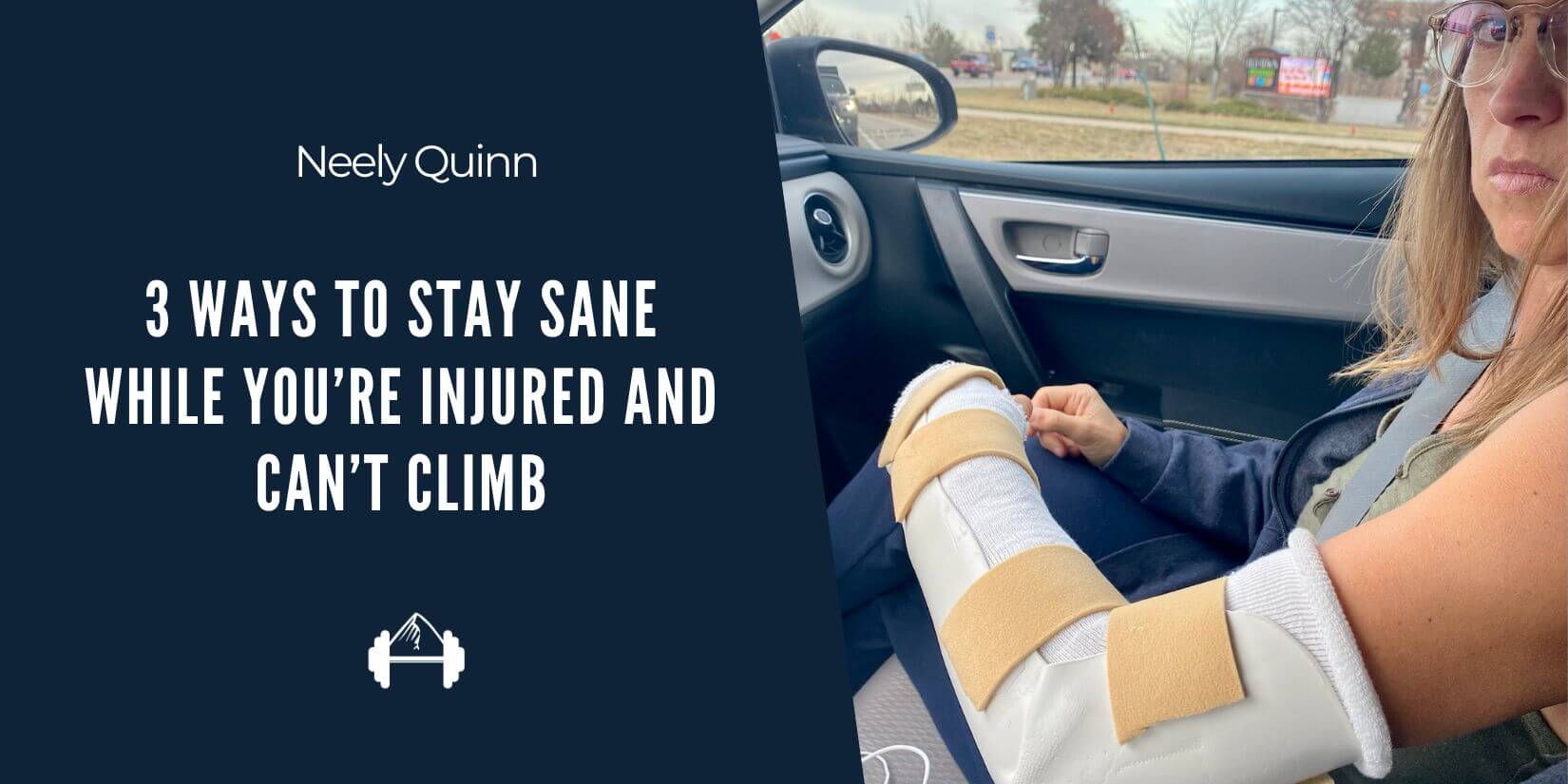By Shaina Savoy
Do you ever feel stressed out about all of the messages we are bombarded with concerning nutrition? Whether it’s calories, macronutrients, nutrient timing, collagen, BCAAs, trendy supplements, recovery nutrition, hydration, various fad diets, diet culture, ANTI-diet culture… The list can go on forever.
We are overloaded and overwhelmed by these many, often conflicting, messages we receive on a day-to-day basis. It’s no wonder this leaves us feeling so stressed out when making decisions about food! These messages leave us out of tune with our body’s needs, and create confusion when fueling for our training or performance sessions, sometimes leading to decision fatigue and unsupportive eating behaviors. At its worst, they can create feelings of self-criticism, guilt, shame, and low self-worth.
This is where practicing mindful eating behaviors can come in handy.
What Is Mindfulness?
Although it can sound like another slap-on identity for someone walking around shrouded in a holier-than-thou incense cloud of spiritual promise and Spirulina, I promise it’s more intrinsic than that. Mindfulness helps you focus on experiencing the present moment by encouraging you to bring awareness to your thoughts, feelings, behaviors, environment, and physical body sensations, without judgment or reacting.
Mindful eating invites you to be present, aims to provide you with some clarity, and gives you the presence of mind to respond in a new way. Developing mindfulness can be used as a tool to help guide you to nourish yourself in a way that gives you optimal health, foster a healthy relationship with food, and also support you in your performance! It can help you find a way to savor your food without any judgment, guilt, anxiety, or negative internal commentary.
In this article, I’m introducing you to a mindful approach to nutrition that can help you discover how to tune into and trust your own body. These tips aim to help you: 1) cultivate a more positive relationship with food, 2) use mindfulness as a key strategy for fueling yourself optimally, and 3) help you learn to make choices that are aligned with your performance needs.

Unsupportive Eating Behaviors
If you want to gain a better understanding of your eating behaviors and how to better support your own needs, you should start by bringing awareness to, or identifying, eating patterns that you struggle with. Once you can identify what your thoughts and behaviors are that are not supportive of you and your goals, you can then begin to address them.
There are two obvious ways that athletes often struggle with their eating behaviors:
- Overly restrictive and regulated eating behaviors
- Neglecting or overlooking nutritional needs
Here are some examples of restrictive or overly-regulated eating behaviors:
- Labeling food as “bad” or “off-limits”
- Implementing strict food rules
- Restricting entire food groups based out of fear
- Viewing food as a reward or punishment for performance
- Viewing food as something that needs to be earned or burned
- Refusal to eat when hungry in order to be “light”
- Only eating during overly restrictive set times
- Feeling guilty after eating certain foods
- Obsessing over food or feeling uncontrollable around food
- Feeling stress or anxiety over perfect nutrient timing
- Feeling fatigued or under-fueled during climbing or training sessions*
Here are some examples of neglecting or overlooking nutritional needs:
- Overeating or under-eating regularly
- “Forgetting” to eat
- Feeling as though you’re constantly “falling off” the “bandwagon”
- Constantly giving in to an all-or-nothing mindset
- Feeling like you lack accountability
- Not knowing HOW to get the nourishment you need, and giving up on it
- Feeling lost or overwhelmed by nutrition advice
- Unable to stick with habits that support goals
- Making poor fueling choices due to a lack of being prepared
- Feeling frustrated but unsure how to create change
- Feeling fatigued or under-fueled during climbing or training sessions*
These are, of course, examples and this is not an exhaustive list. Your experiences are unique to you. Use these lists to help you reflect and identify what kind of eating patterns you struggle with.
** I want to highlight the prevalence of under-fueling as athletes. The term energy availability is defined as the energy left over after the energy expended from exercise has been accounted for. When energy expenditure is not accounted for by an increased energy intake due to an athlete under-fueling, this can bring about serious metabolic, hormonal, and psychological health consequences, such as RED-S.
Under-fueling can be unintentional, or can be the result of disordered eating and eating disorders, an unhealthy relationship with food, and striving to obtain a certain physique for sport. Implementing mindful eating strategies can be a useful tool in helping to prevent under-fueling; however, it’s critical to seek support from a nutrition professional if you suspect a serious issue with under-fueling, an eating disorder, or RED-S.
Steps to Address Behaviors and Practice Mindfulness
If you’re into journaling, or you have a piece of paper close to you, I’ve got some prompts to help guide you through the practice of mindfulness! You can also just think them through in your head if that’s enough for you.
1. Write down some habits or eating behaviors that you really struggle with.
For example, “I struggle with constant snacking. I’m never fully satisfied after my meals and am always looking for something else to eat.”
Or, “I often go into my training session hungry because I forgot to pack a lunch or snack, and then my performance suffers, I feel shaky, and I end up hitting a wall mid-session.”
2. Try your best to adopt an attitude of curiosity and non-judgement.
Ask yourself why you might be struggling with these things. What are these habits or behaviors trying to tell you? Withhold judgment and be kind to yourself in the way that you would be kind to a friend. Observe why, how, and what you are experiencing from a neutral perspective.
For example…
Instead of, “Ugh, why am I always so hungry? What is wrong with me? Why do I crave sugar all of the time?”
Try: “If I’m always looking for a sugary snack, is there a message my body is trying to convey? What is my body trying to tell me? I notice that I still feel hungry after eating. Maybe I’m not giving my body what it needs or I’m restricting nourishment from it.”
Or, instead of “I’m too overwhelmed by food choices, and it probably doesn’t matter anyway, so I’m going to just go into this workout hungry.”
Try, “I’m not really sure how to fuel myself well, and when I get overwhelmed trying to plan my meals or snacks, I just choose to opt out. I’m also afraid I’m going to feel too full for my training session. I might be neglecting my body’s needs.”
3. Reflect on what you would like to experience instead and jot it down.
In turn, this will help you identify where to reframe your thoughts and behaviors so that they can better align with your actions and what you’d like to experience.
For example, “I want to feel satisfied and satiated after all of my meals. I don’t want to feel uncontrollable around snacks or sweets.”
Or, “I would like to feel more energetic during my training or climbing sessions so that I’m not bonking in the middle of them. I would also like to feel more empowered when making decisions about fueling.”
4. Lastly, write down realistic ways that you can work to solve or heal these behaviors.
For example, “Maybe I could make sure that I’m eating enough calories or that I’m eating enough carbohydrate to keep up with my body’s energy demands. I could also reevaluate my meals to make them more fulfilling or enjoyable, and/or pack well-balanced snacks that satisfy me.”
Or, “I can work to be more prepared so that I can fuel myself better. Doing so will help me get more benefit out of my sessions. Is there some extra time I can set aside to meal prep? Maybe I could reach out to a nutritionist to help me feel less lost when making decisions surrounding fueling.”
The Goal of Practicing Mindful Eating
Ultimately, your goal should be to find a balance between eating for enjoyment and eating for fueling or nourishment. You want to have a little flexibility so that you can enjoy fun food, but also have consistency so that you are nourishing yourself well and fueling your performance optimally. You should feel satisfied and satiated after meals, and your eating habits should support your life and performance. They should leave you feeling empowered and motivated, not drained, fatigued and hungry.
One of the most simple and powerful questions I ask myself when I’m struggling with a particular eating pattern is, “How is this habit or behavior serving me? Is it actually bringing me closer to my goals?”

Common Fueling Pitfalls and How to Avoid Them
1. Not Having a Plan and/or Under-Fueling:
When we don’t have some sort of a plan for our meals, we end up grabbing convenience foods that might leave us feeling unsatisfied, or we wait too long to eat and end up hangry or ravenous!
I kind of hate this analogy, but think about your body as if it were a car. What would happen if you didn’t put gas in the car? It would break down! While food is pleasure, it is also fuel. Making SOME kind of a plan will help you feel so much better and keep you from breaking down on the side of the road.
Think about any opportunities in your day that you can use to prepare meals or snacks. Whether it’s intentionally making leftovers while cooking dinner, or throwing some veggies into the oven while you’re doing chores around the house. Think about a meal that is simple to make and doesn’t leave you feeling overwhelmed. It can be super basic and simple, and you can always jazz something up with a sauce!
Under-fueling will ultimately impact the quality of your training sessions, undermine your performance, decrease your ability to recover, and limit any gains you would normally get otherwise. Aside from climbing, it will also decrease the quality of your life in general. Try to avoid the unintentional (as well as intentional) mistake of under-fueling. It’s not serving you.
2. Not Creating Well-Balanced or Satisfying Meals:
Think about the car analogy again… Maybe you put fuel in the car, but you forget to have your routine maintenance done, like changing the oil or rotating your tires. Your car will keep going for a while without doing those things, but eventually the car will give out! Cars that get regular maintenance run better and last longer.
So, what counts as the “maintenance” for your body? Things like getting in your micronutrients (vitamins and minerals) and eating satisfying and satiating meals. Not getting enough protein, carbohydrate, fat and fiber, or even not making a meal enjoyable, can leave you feeling unsatisfied or still hungry. Aim to provide your body with the nourishment it needs by eating an abundance of nutrient-dense whole foods packed with vitamins and minerals. You also need to take into account your personal preferences and create meals that you genuinely enjoy and look forward to.
Try to make sure you create a meal that combines: protein, starchy carbs, non-starchy vegetables, a fat source, and something fun and flavorful like a sauce or spices to keep your meal interesting and satisfying.
3. Poor Meal Timing:
While climbing in China, my partner, Jonathan Siegrist, once made a joke about eating a metric ton of spicy noodles for breakfast and then trying to siege the wall. While it was a funny image, he was definitely onto something.
It’s not fun being uncomfortable while trying to perform. Everyone has their own threshold for what kind of foods they can handle or tolerate. However, foods that are high in fiber and/or fat, or eating too big of a meal right before trying to train or perform can give you some digestive distress that ultimately might have an impact on your performance. Again, everyone has their own limits, but you can avoid cramping, nausea, or any distress if you’re a little more discerning about what foods you choose to eat at certain times.
The closer you get to your training or performance session, you’ll want to choose foods that are easier to digest. Think more “simple” carbohydrate sources such as rice cakes, bananas, crackers, etc. These are all great choices if you plan to exercise in the next 30 – 60 minutes and you feel like you need a snack, or maybe you need a snack during your session.
Continue to Check in With Yourself
Stay curious! Before, during, and after training or performance sessions, try to pay attention to any physical sensations, mental fatigue, feelings, and thoughts. If you are finding that you are often having poor quality climbing sessions, ask yourself why and try to identify the underlying reasons. Use mindfulness as a way to make adjustments to the root causes, instead of just pushing through your sessions because you feel like you have to!
When we adopt a more mindful approach to food, we are more aware. Awareness brings calm and clarity to the mind. More calm and clarity promotes less stress around food, helping us to make better choices and feel more content about the way we eat. As a result, we are also more compassionate and less judgmental towards ourselves.
A few things to remember…
- Food is for both enjoyment and nourishment; We can make choices that support our health and well-being, but also enjoy the fun foods we love without guilt or judgment.
- There is no ‘right’ or ‘wrong’ way to eat, and everyone’s eating experiences are unique. The goal isn’t necessarily to change the way we eat – though it can be sometimes too – but to change our thinking around food and the way we treat our bodies.
- You deserve to find your own unique balance and to feel ease and joy with food!
The only way to understand our relationship with food is to spend time with that relationship. Once we can step away from unhealthy thoughts or feelings about our food, we can cultivate a sustainable and balanced approach to the way we eat!
—
Lastly, while it’s normal to struggle with certain eating behaviors and habits from time to time, or feel friction when implementing a change, there is a threshold. If you feel as though you struggle with an eating disorder, or disordered eating behaviors, I deeply encourage you to seek help. Eating disorders are a serious illness that needs proper care, treatment, and support.
If you’d like help with dialing in your nutrition so that you feel more satiated by your food and empowered in your eating decisions, Neely Quinn (founder of TrainingBeta) offers consultations and classes.
Author Bio
 Shaina Savoy is a passionate rock climber and Nutrition Therapist Master candidate living in Las Vegas, Nevada. While she especially enjoys helping athletes thrive on a plant-based diet, she firmly believes diet is a personal matter – everyone’s dietary needs are different in the same way that everyone’s bodies are different. This is why she loves helping others tap into their relationship with food through mindful eating. She believes that everyone deserves to feel empowered when making decisions with eating and that they deserve to enjoy a balanced, sustainable relationship with food.
Shaina Savoy is a passionate rock climber and Nutrition Therapist Master candidate living in Las Vegas, Nevada. While she especially enjoys helping athletes thrive on a plant-based diet, she firmly believes diet is a personal matter – everyone’s dietary needs are different in the same way that everyone’s bodies are different. This is why she loves helping others tap into their relationship with food through mindful eating. She believes that everyone deserves to feel empowered when making decisions with eating and that they deserve to enjoy a balanced, sustainable relationship with food.
When she’s not working or studying, Shaina enjoys spending all of her time with her dog Juniper, eating pancakes, and finding different ways to reconnect with the Earth.









Leave A Comment